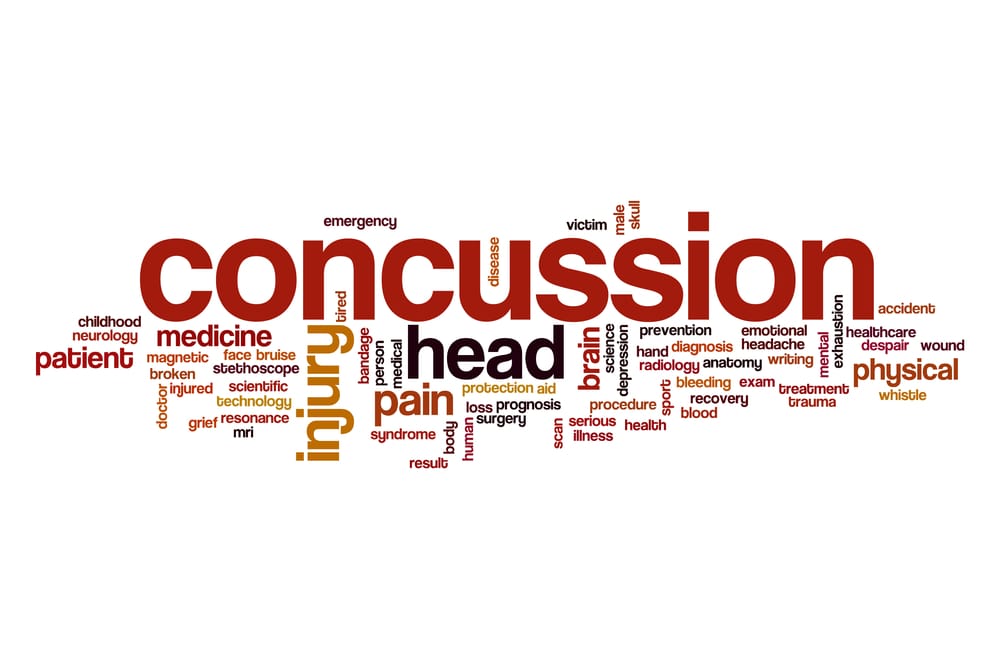Buckle up, folks! We’re about to explore the wild and wacky world of concussions. These head injuries may seem like a bummer, but hang on tight because they’re actually riddled with fascinating tidbits and surprises. Join us as we shatter the myths, uncover the unknown, and dive into the mind-bending facts that will leave you slapping your forehead in disbelief. Get ready to laugh, learn, and discover the hidden secrets of these brain-rattling injuries!
Fun Facts About Concussions
You know how in movies, someone gets a good knock on the head and they’re out like a light? Turns out, real life isn’t always like the movies! Let’s dive into some surprising facts about concussions.
1. You Don’t Always Pass Out
The first thing that probably comes to mind when you think of a concussion is someone getting knocked unconscious. But guess what? You don’t actually have to black out to have a concussion. It’s true! Many people with concussions stay awake and alert. It’s like a brain glitch that doesn’t always come with a power outage.
2. Concussions Come in Different Strengths
Just like earthquakes have different magnitudes, concussions have different grades of severity. They range from mild (Grade 1), which is like a little tremor in your head, to severe (Grade 3), which is more like a full-blown brain earthquake. The symptoms and recovery time depend on how “shaken up” your brain gets.
3. Multiple Concussions are Bad News
Imagine getting a ding in your car. The first one might not be a big deal, but if you keep getting dings, the damage adds up, right? The same goes for concussions. Multiple concussions, even if they seem minor, can increase the risk of long-term problems like memory issues and a condition called chronic traumatic encephalopathy (CTE).
4. Sometimes, Symptoms Take Their Time
Here’s a tricky thing about concussions: the symptoms don’t always show up right away. It’s possible to feel fine immediately after a head injury only to experience headaches, dizziness, or confusion hours, days, or even weeks later. That’s why it’s important to keep an eye on yourself after any impact to the head.
5. Recovery Time Varies
Most concussions clear up within a few weeks, kind of like a bad cold. But some people experience symptoms for months or even years. These lingering concussions are more complex and require ongoing care and support to help the brain heal properly.
Key Fact: Concussion recovery duration varies significantly, averaging 11 days for boys and 28 days for girls. Recovery is slower in older individuals.
6. Rest is Your Brain’s Best Friend
Think of a concussion as your brain telling you it needs a time-out. The best thing you can do is listen! Rest is the most effective treatment. This means avoiding activities that worsen symptoms, like intense exercise or staring at screens for a long time. Give your brain a break to recover.
7. Thinking Straight Can Be Tough
Remember that brain glitch we talked about earlier? Well, sometimes it can make it harder to think clearly. Concussions can affect your memory, concentration, and ability to solve problems. It’s like having brain fog that just won’t lift. Fortunately, cognitive therapy can often help improve these functions.
8. Early Diagnosis Makes a Big Difference
Just like with many health issues, the sooner you catch a concussion, the better. Early diagnosis and treatment significantly increase the chances of a full recovery. So, if you ever suspect a concussion, don’t hesitate to seek medical attention right away.
9. Concussions and Kids Don’t Always Mix Well
Diagnosing concussions in children can be trickier than in adults because their symptoms might be different or harder to spot. Kids might not be able to clearly communicate what they’re feeling, so parents and caregivers need to be extra vigilant. If you suspect your child has a head injury, err on the side of caution and seek medical advice promptly.
10. Fancy Brain Scans Aren’t Always Necessary
You might think doctors always need to see inside your head with a CT scan or MRI to diagnose a concussion. While those scans can be helpful in some cases, they’re not always necessary. Often, a doctor can diagnose a concussion by conducting a thorough physical exam and neurological tests, which assess things like your balance, reflexes, and memory.
There’s a lot more to learn about concussions, and scientists are constantly making new discoveries. This field of study is very active. Remember, if you have any concerns about a potential head injury, don’t hesitate to reach out to a healthcare professional.
What are two facts about recovering from a concussion?
So, you’re learning about concussions, which means you’re already on the right track to understanding this tricky injury. Here’s the thing about recovering from a concussion: it’s not one-size-fits-all.
First off, how long it takes to bounce back can be totally different for everyone. Think about it: your age, whether you’re male or female, and just how hard you got bumped on the head all play a role. It’s like recovering from a cold – some folks shake it off quickly, while others need a bit more time to feel like themselves again.
Second, and this might surprise you, you don’t always need a direct hit to your head to get a concussion. Crazy, right? These are sometimes called “non-contact” concussions. They can happen from things like whiplash, where your head jerks back and forth really fast, or even from a hard fall.
Key Fact: Concussions don’t always result from head impacts; non-contact injuries can also cause them.
Just remember, recovering from a concussion is a journey, and it’s important to listen to your body and your doctor every step of the way.
What is the most concussions a person has had?
You’re probably wondering, “Just how many concussions can someone have?” It’s a question that pops up a lot, especially in sports. Sadly, there’s no magic number. It’s not like you get a certain number of concussions, and then bam, you’re in trouble. The truth is much more complicated.
Think of it like this: everyone’s brain is different. Some people bounce back from concussions quickly, while others might have lingering effects even after a seemingly mild one. The number of concussions someone has experienced is definitely a factor, but it’s not the only one.
The severity of each concussion plays a huge role. A light bump on the head is different from a forceful impact that causes a loss of consciousness. The length of time between concussions also matters. If you have multiple concussions close together, your brain hasn’t had a chance to fully recover, making it more vulnerable. And of course, your overall health plays a part too.
Now, about that risk of serious problems. Researchers are still trying to figure out exactly how many concussions might lead to long-term issues like chronic traumatic encephalopathy (CTE). Some studies suggest that even a single concussion could have lasting effects, while others point to three or more as a tipping point. It’s a complicated area of study, and there’s still a lot we don’t know.
Key Fact: Concussions are Mild Traumatic Brain Injuries (mTBI) that can occur following a blow to the head, causing temporary brain dysfunction.
The bottom line is that concussions are serious business. The best approach? Avoid them altogether! Wear a helmet when you’re playing sports or doing anything that puts you at risk for a head injury. And if you think you might have a concussion, don’t hesitate to see a doctor. Early diagnosis and treatment can make a world of difference.
What are 5 causes of concussions?
We’ve been talking about concussions, so let’s dive into what commonly causes them. It’s not always about a direct hit to the head– even sudden jolts can cause your brain to bump around inside your skull. That’s basically what a concussion is – a mild traumatic brain injury.
Here are some everyday situations where those unfortunate bumps can happen:
- Contact Sports: This one’s probably no surprise. Think football, rugby, hockey, boxing – sports where impacts are practically part of the game. Those hits, whether it’s head-to-head or even a hard tackle that jolts the head, can really shake things up inside your skull.
- Falls: We’ve all taken a tumble, but falls are a leading cause of concussions, especially for young kids and older adults. Tripping over a rug, slipping in the bathroom, or taking a spill down the stairs – those unexpected impacts can lead to a concussion.
- Car Accidents: The forces involved in a car crash, even at lower speeds, are enough to cause your head to whip back and forth rapidly. That sudden movement can cause a concussion. It’s one reason why wearing your seatbelt is so crucial.
- Getting into Fights: This might seem obvious, but it’s worth mentioning. Whether it’s a playful punch gone wrong or a more serious physical altercation, blows to the head can lead to concussions.
- Just Having Fun: Even everyday activities can be risky. Riding a bike, skateboarding, skiing – basically anything where there’s a chance of falling (and falling hard). Even without a direct hit to the head, the force of the impact can transfer to your brain, leading to a concussion.
Key Fact: Biking accidents account for the highest number of concussions.
Keep in mind that this isn’t an exhaustive list. There are other ways concussions can happen, and researchers are constantly learning more about them.
What can 4 concussions do to you?
So, we’ve been talking about concussions and how they can impact your health. But what happens when you’ve had not just one, but four concussions? It’s a bit like dropping your phone repeatedly – the first few drops might not do much damage, but eventually, those cracks start to show, right?
Unfortunately, our brains aren’t as easy to fix as a phone screen. Every concussion, even a seemingly mild one, can leave a mark. The more concussions you have, the greater the risk of those marks turning into serious problems.
Think about it this way: your brain is like a delicate network of wires, all firing away to keep you thinking, moving, and feeling. A concussion is like shaking that network – some wires might get crossed, connections might weaken, and the whole system can get thrown out of whack.
Now, imagine shaking that network four times. You can probably see how the damage could add up. Your thinking might get foggy, remembering things could become a struggle, and you might feel constantly tired and irritable. It’s like your brain is stuck in low power mode and can’t quite recharge.
But it can go beyond that. Some scientists believe that multiple concussions could increase the risk of developing serious conditions like chronic traumatic encephalopathy (CTE), a brain disease that causes memory loss, personality changes, and problems with thinking. It’s a scary thought, and while research on CTE is still ongoing, it’s a reminder that concussions shouldn’t be taken lightly.
Key Fact: Repetitive concussions significantly increase the risk of long-term cognitive, physical, and emotional impairments, including chronic traumatic encephalopathy (CTE).
Remember, it’s not just about the number of concussions – the severity of each one and the time between them also play a role. Someone who’s had four very mild concussions spread out over many years might recover differently than someone who’s had four more severe concussions in a short period.
The bottom line is, if you’ve had multiple concussions, it’s crucial to be extra careful and listen to your body. If you’re experiencing any lingering symptoms like headaches, dizziness, memory problems, or mood swings, don’t brush them off – talk to your doctor. They can help you understand the potential risks and figure out the best way to protect your brain health.
How long did the longest concussion last?
That’s a question that really gets to the heart of how mysterious concussions can be. You see, unlike a broken bone that heals on a predictable schedule, brain injuries like concussions don’t play by the same rules. It’s impossible to pinpoint an exact duration for the “longest” concussion because everyone’s recovery journey is unique.
Think of it like this: a mild concussion might be like a quick bump on the head, clearing up within a few weeks. But a severe concussion? That’s more like a major system reboot that can take months, even years, to fully shake off. It’s not just about how hard you got hit, but also how your brain responds to that impact.
Here’s where it gets even more interesting – some people might experience lingering symptoms long after they think they’ve recovered. These “post-concussion symptoms,” as they’re called, can be as varied as the people experiencing them. We’re talking about things like memory problems, difficulty concentrating, persistent headaches, fatigue that just won’t quit – it’s a whole mixed bag.
Key Fact: Concussion Recovery Varies Significantly: Recovery time can range from days to years depending on the severity of the symptoms and individual characteristics.
Now, scientists are constantly researching concussions, trying to unravel the mysteries of the brain and how it heals. They’re looking at everything from new diagnostic tools to innovative treatment options. What we do know is that rest is crucial after a concussion, giving your brain the time and space it needs to repair itself.
So, while we can’t give you a definitive answer on the absolute longest concussion duration, we can say this: if you suspect you’ve had a concussion, don’t ignore it. Talk to your doctor, prioritize rest, and be patient with your recovery. Your brain will thank you for it.
Do Concussions Go Away?
So, you’ve had a bump on the head – a concussion. It’s a common concern, and you’re probably wondering, “Will this go away?” Well, the good news is that most concussions do clear up on their own. Think of it like a bruise on your brain; it needs some time to heal.
Now, how long that takes can be different for everyone. Some folks bounce back within a few days or weeks, feeling like themselves again. But for others, it might take a bit longer.
Here’s the thing: sometimes, a concussion can lead to something called post-concussion syndrome. Imagine it like the concussion symptoms sticking around longer than they should – things like headaches that just won’t quit, feeling tired all the time, or having trouble thinking clearly.
Key Fact: Concussions can have long-term effects, including post-concussion syndrome with symptoms like headaches, fatigue, and sleep disturbances.
But don’t worry, there are ways to help your brain recover and get you back in the game. Rest is key in those early days; think of it as giving your brain a timeout to recuperate. Your doctor might also suggest things to manage those pesky symptoms, like headaches or dizziness.
As you start to feel better, easing back into activity is important. No need to rush! Your doctor can guide you on gradually increasing your activity level, ensuring your brain heals properly.
Think of it like this: your brain is like a muscle; it needs rehabilitation after an injury. There are things like physical therapy or vision therapy (if your eyes are affected) that can help retrain your brain and speed up recovery.
Lifestyle changes can also make a big difference. Eating healthy, getting enough sleep, and avoiding things that strain your brain (like too much screen time) can support your brain’s healing process.
Remember, every concussion is unique, so listening to your body and following your doctor’s advice is crucial. They’re your best ally in navigating the road to recovery.
Now, here’s a little something you should know: repeated concussions can be a bit riskier. It’s like getting multiple bruises on the same spot; it takes longer to heal, and the chances of long-term problems might increase.
That’s why taking steps to prevent concussions in the first place is super important. Wearing the right protective gear during sports, being mindful of your surroundings to avoid falls, and just being aware of the risks can go a long way in keeping your brain safe.
Remember, if you ever suspect a concussion, don’t hesitate to seek medical attention. They can assess the situation, provide the right guidance, and help you get back on track.
The bottom line? While most concussions heal independently with time and care, every case is different. Listen to your body, follow medical advice, and take those preventive measures seriously to protect your most valuable asset – your brain.
What are two things you must do after a concussion?
So, you’ve had a bump on the head – a concussion, they call it. What now? Two things are super important in those first few days and weeks to help your brain get back on track.
1. Hit the Pause Button: Rest is Your New Best Friend
Think of your brain like a muscle that’s just been overworked. It’s tired! After a concussion, your brain needs a serious time-out to heal and repair itself. That means taking it easy – lots of naps, maybe curling up with a good book (audiobooks count!), or just chilling out with some calming music.
This isn’t the time for intense workouts, staring at screens all day, or trying to power through mentally demanding tasks. All those things can actually make your symptoms worse and slow down your recovery.
2. Don’t Play Doctor, See a Real One!
Even if you’re feeling “okay,” seeing a healthcare professional after a concussion is non-negotiable. Why? Because they’re the experts. They can figure out how severe your concussion is, give you personalized advice on how to recover, and, most importantly, make sure there aren’t any hidden complications lurking beneath the surface.
Remember, every concussion is unique, and what works for one person might not work for another. Early medical attention is like an insurance policy for your brain, helping to ensure you recover safely and effectively.
Key Fact: Early detection, proper medical management, and rest are crucial for preventing the severity and long-term consequences of concussions.
Think of it this way: You wouldn’t ignore a sprained ankle, would you? A concussion is a brain injury, and it deserves the same level of care and attention.
What are the after effects of a concussion?
So, you’ve probably heard the term “concussion” thrown around, maybe in sports or after someone takes a nasty fall. But what exactly happens after a concussion? Turns out, the effects can be pretty varied, ranging from those annoying short-term symptoms to some potentially serious long-term issues.
Think of your brain like a delicate instrument, carefully balanced and tuned. A concussion is like giving that instrument a sudden shake – it disrupts the normal way your brain cells communicate and function. This disruption can lead to a whole slew of symptoms, some showing up right away and others creeping up on you down the road.
Let’s talk about those short-term effects: You know those headaches that just won’t quit? Yeah, those are pretty common after a concussion. But it’s not just headaches – you might feel nauseous, dizzy, and kinda off-balance. Simple things like concentrating on a task or remembering where you put your keys might suddenly feel difficult. And don’t be surprised if you find yourself feeling more irritable or tired than usual – your brain is working overtime to heal itself!
Now, for the long-term stuff: While most people bounce back from concussions without long-term problems, some folks experience what’s called post-concussion syndrome. This means those pesky symptoms like headaches, dizziness, fatigue, and memory issues can linger for weeks, months, or even longer. It’s like your brain is having trouble fully recovering from that initial shake-up.
Key Fact: Long-term effects of a concussion, also known as post-concussion syndrome, can include persistent headaches, dizziness, fatigue, and cognitive difficulties.
And then there’s chronic traumatic encephalopathy (CTE), a serious brain condition linked to repeated head injuries, including concussions. Scientists are still unraveling the mysteries of CTE, but it seems that repeated trauma can trigger a cascade of changes in the brain, leading to problems with thinking, memory, behavior, and even motor control. This is a big reason why protecting your head, especially during contact sports, is so incredibly important.
So, what should you do if you think you might have a concussion? First things first: Listen to your body. If you’ve hit your head and notice any of those telltale concussion symptoms, don’t try to tough it out. Head to the doctor or the emergency room right away. They can assess your symptoms and figure out the best course of action.
Speaking of treatment: There’s no magic pill for concussions (wouldn’t that be nice?), but there are things you can do to manage those symptoms and help your brain heal. Think of it like recovering from any other injury – rest is key! It might mean taking a break from sports, putting your work or studies on hold for a bit, and avoiding activities that strain your brain.
Your doctor might also suggest over-the-counter pain relievers to ease those headaches, and in some cases, physical or cognitive therapy can help you regain your strength, balance, and mental sharpness.
Of course, prevention is always the best medicine. While you can’t prevent every accident, there are smart choices you can make to protect your precious noggin:
- Gear Up: Wearing a helmet is non-negotiable when you’re playing contact sports, riding a bike, or engaging in any activity where a head injury is a risk.
- Play it Safe: It might seem like common sense, but avoiding activities that put you at a higher risk for head injuries is one of the best ways to prevent concussions.
- Learn to Fall: Knowing how to fall correctly – tucking your head and rolling – can help minimize the impact on your brain if you do take a tumble.
- Home Sweet Safe Home: Making your home environment safer for everyone, especially young children and older adults, can go a long way in preventing falls and head injuries. Think about removing tripping hazards, installing grab bars in bathrooms, and using non-slip mats.
The bottom line? Concussions are serious business, but the good news is that most people make a full recovery with proper care and a little bit of patience. By staying informed, making smart choices, and seeking medical attention when needed, you can help protect your brain and keep it humming along smoothly for years to come.
What are the 4 steps of recovering from a concussion?
So, you’ve had a concussion. It’s like your brain got a little shaken up, and now it needs some time to chill out and recover. The good news is that most concussions are mild and people bounce back pretty quickly. But even if yours feels minor, it’s super important to take care of yourself properly. Think of it like a sprained ankle – you wouldn’t go running a marathon on it, right? These four steps are all about giving your brain the best chance to heal properly.
1. Hit the Pause Button: Rest is Your New Best Friend
Imagine your brain is like a phone that’s run out of battery. Rest is like plugging it in to recharge. After a concussion, your brain needs a break from all the usual hustle and bustle. That means easing up on things that require a lot of brainpower, like:
- Physical Activity: Intense workouts and sports can wait. Even if you feel up to it, too much physical activity can divert blood flow away from your brain when it needs it most. And of course, you definitely want to avoid anything that could lead to another bonk on the head!
- Mental Exertion: This means giving your brain a break from things like studying, working on complex projects, or even just reading for long periods.
- Screen Time: The constant flickering and blue light from phones, computers, and TVs can really strain your brain, especially after a concussion.
2. Say “No” to Alcohol and Drugs
Think of alcohol and drugs like party crashers for your brain’s recovery party. They just mess everything up!
- Alcohol: Being dehydrated is already bad for headaches, which are common after a concussion. Alcohol just makes you more dehydrated. Plus, it can interfere with your sleep, which your brain desperately needs right now.
- Drugs: Certain medications can interact with your recovery process. It’s always best to check with your doctor before taking anything, even over-the-counter stuff.
3. Your Doctor: The Concussion Coach
Your doctor is like a coach who’ll create a personalized game plan for your recovery. They’ll give you specific instructions based on how severe your concussion is, and what your symptoms are like. This might involve:
- Taking it Easy: They’ll probably advise you to rest for a specific amount of time, gradually easing back into your normal routine.
- Activity Restrictions: Some activities might be off-limits for a while, especially those that are physically or mentally demanding.
- Medication: In some cases, your doctor might prescribe medication to manage symptoms like headaches or sleep problems.
- Specialist Referrals: If your concussion is more serious or you’re having persistent problems, they might refer you to a neurologist or other specialist.
4. Patience is a Virtue (and Essential for Concussion Recovery)
Recovering from a concussion isn’t always a quick process. Think of it like healing from a broken bone – it takes time for things to knit back together properly. Don’t get discouraged if you don’t feel 100% right away. Most people start feeling much better within a few weeks, but everyone’s different. Listen to your body and don’t rush the process.
Key Fact: Swift Response Essential: Prompt recognition and management of concussions are vital for optimal recovery and reduced risk of complications.
Red Flags: When to Seek Immediate Medical Attention
While most concussions resolve on their own, some symptoms require urgent medical attention. Call your doctor immediately or head to the emergency room if you experience:
- Headaches that just won’t quit
- Nausea or vomiting
- Feeling dizzy or unsteady on your feet
- Sensitivity to light or sound
- Struggling to concentrate or remember things
- Sudden changes in your mood or behavior
Why is it important to fully recover from a concussion?
Okay, so you’ve had a concussion. It might seem like no big deal, especially if it was a mild one, but trust me, taking the time to fully recover is super important. Think of your brain like a delicate instrument – it needs time and care to heal properly after an injury. If you rush things, it can lead to some not-so-fun consequences down the road.
One of the biggest risks of not letting your brain fully recover is something called post-concussion syndrome. This is basically when those annoying concussion symptoms like headaches, dizziness, and brain fog decide to stick around for weeks, months, or even longer. Imagine trying to concentrate on work or school with a constant headache – not exactly a recipe for success, right?
Then there’s second impact syndrome, which is thankfully rare but extremely serious. This happens when you get another concussion before your brain has fully healed from the first one. It can lead to severe brain swelling and even be life-threatening. So, yeah, definitely not something you want to mess with!
But even if you don’t experience those extreme outcomes, not fully recovering can increase your chances of having another concussion in the future. And each time you bump your head, the damage can add up, potentially leading to long-term problems with your thinking, memory, and emotions.
Here’s the thing – concussions can impact everyone differently. Some folks bounce back quickly, while others need more time to heal. It’s kind of like a fingerprint – unique to you. That’s why it’s so important to listen to your body and follow your doctor’s advice.
Key Fact: The Perils of Incomplete Concussion Recovery: Discover why fully recovering from a concussion is crucial to avoid compounding symptoms and impairing healing.
Rest is going to be your best friend during the recovery process. That means taking it easy physically and mentally. Avoid anything that strains your brain, like staring at screens for too long, reading intense books, or trying to solve complex problems. Think of it as a much-needed vacation for your brain!
If you have any doubts or concerns about your recovery, don’t hesitate to reach out to your doctor. They can help you navigate the process and make sure you’re on the right track. Remember, a little patience and self-care go a long way when it comes to recovering from a concussion.
Did you know that the asthenosphere is the layer of the Earth’s mantle that is directly below the lithosphere? Learn more facts on the asthenosphere.
Astatine is the rarest naturally occurring element on Earth. Discover more fun facts about astatine.
- China II Review: Delicious Food & Speedy Service - April 17, 2025
- Understand Virginia’s Flag: History & Debate - April 17, 2025
- Explore Long Island’s Map: Unique Regions & Insights - April 17, 2025
















